
KU’s online Curriculum & Teaching programs
The Department of Curriculum and Teaching at the University of Kansas offers respected online programs that prepare you for diverse careers in education and beyond. With dedicated faculty and a strong alumni network, KU's School of Education and Human Sciences equips you with transformative skills that extend far beyond the traditional classroom.
Whether your goal is to advance as a K-12 educator, become an educational consultant, develop corporate or military training programs, or teach English internationally, KU's online C&T programs provide the expertise and credentials to help you succeed in these fulfilling fields. Blending cutting-edge research with practical applications, the online C&T programs empower you to make meaningful impacts in education while opening doors to new professional opportunities.

Discover your path in curriculum and teaching

Curriculum and Instruction (Master’s)
Develop expertise in implementing impactful curricula. This versatile degree empowers educators to influence learning experiences across diverse educational settings, enhancing student outcomes through evidence-based practices and innovative approaches.
Teaching English to Speakers of Other Languages (TESOL)
Master the skills to effectively teach English language learners across multiple cultures and settings. Whether you're adding an endorsement to your existing credentials or developing skills for international opportunities, we offer flexible program options to meet your goals.
Online master’s in TESOL
Online graduate certificate in TESOL

Develop skills for diverse career paths

Curriculum & teaching skills
- Curriculum design and assessment
- Instructional leadership
- Educational technology integration
- Cultural competence and inclusivity
- Research-based teaching strategies
- Program evaluation

Career opportunities for C&T graduates
- K-12 classroom teacher
- Curriculum development
- Educational consultant
- Corporate/HR training professional
- Academic advisor/counselor
- Museum educator
- Athletic director
- English teacher
- Private tutor
- University instructor
Many of our TESOL program graduates leverage their expertise to teach English in countries across the globe, combining their passion for education with international adventure and cultural immersion.

My favorite parts about the program were the professors and class sizes. I was able to get actionable and supportive feedback from peers and professors in a timely manner. Most of my classes had roughly 15 other students, making it feel more personal as well.
Learn from leaders in educational innovation
At KU's Department of Curriculum and Teaching, you'll study with renowned faculty who are constantly expanding the boundaries of educational research and practice. As part of a research university ranked in the Top 15 Education Schools nationally, you'll gain insights from scholars who are defining the future of curriculum and instruction.1 Our esteemed faculty are not only pioneering researchers but also experienced educators who bring real-world knowledge to every course. They're dedicated to guiding you in acquiring effective tools and techniques that will empower you as an education professional, whether in a classroom or beyond.
That combination of academic excellence and practical expertise ensures you receive a well-rounded education that prepares you for the evolving challenges and opportunities in today's educational landscape. With the guidance of these experts, you'll develop the skills to address critical needs in a field where 64% of public schools report a lack of qualified candidates and 62% report too few candidates as being the top challenges to filling teaching positions.3
Meet the C&T program directors:
- Dr. Heidi Hallman, whose award-winning research has shaped English education nationwide, leads groundbreaking work on curriculum development and instructional best practices, bringing both scholarly excellence and practical classroom wisdom to KU's programs
- Dr. Lonna Summers Rocha brings extensive experience in bilingual education and TESOL instruction across the U.S. and Mexico, enriching KU’s programs with practical insights and global perspectives
The Jayhawk advantage: Join a powerful community
When you join KU's Department of Curriculum & Teaching's online programs, you become part of the storied University of Kansas Jayhawk tradition. Our community extends far beyond your time as a student, connecting you with a network of alumni worldwide who can support your career advancement and professional development.3

A network that works for you
Access exclusive career resources through HireJayhawks.ku.edu, connecting you with fellow alumni and employers who value the KU educational experience. From job postings to networking events, the Jayhawk community continues to support your success long after graduation.

Excellence recognized nationwide
As a student in KU's School of Education and Human Sciences, you'll benefit from our reputation as a:
- Leader in educational research and innovation
- Pioneer in online education excellence with a 100% alumni recommendation rate2

The faculty were understanding and responsive to questions, whether they were about course content, philosophy, teaching pedagogy, or anything else. I really can't say enough about this program, the professors, and the content. It's all really top-notch.
Through being part of the KU community, you’ll never feel alone. A robust learning management system and custom educational technologies create an engaging, interactive environment where you'll collaborate with peers and faculty. From video discussions with classmates to innovative virtual simulations like Jayhawkville that let you practice your skills, KU’s online experience mirrors the excellence of its on-campus programs.
Get ready to begin your KU journey
Advancing your education is an investment in your future, and KU makes the process straightforward from application to graduation. Our dedicated admissions team will guide you every step of the way, from choosing the right program to navigating financial aid options.

Admissions made simple
Our streamlined application process requires:
- Completed online application
- Bachelor's degree transcripts from an accredited university
- Two or three letters of recommendation (depending on program)
- Personal statement
- Resume or CV
- Application fee
Upon enrollment, you'll be assigned a dedicated student success coordinator who will support you throughout your academic journey, helping you balance your education with professional and personal commitments.
Affordable excellence
KU offers various financial aid options to make your graduate education attainable:
- Federal financial aid (FAFSA school code: 001948)
- TEACH Grants for eligible education students
- Scholarships and tuition assistance
- Payment plans
With tuition starting at $17,850 for full master's programs and $8,925 for graduate certificates, KU provides exceptional value for a top-ranked education that can significantly enhance your earning potential and career opportunities.

Take the next step in your educational journey
IMPORTANT DATES
EVENTS
Check here for upcoming events!
STAY CONNECTED
- Based on a limited sample of self-reported data from alumni of the University of Kansas School of Education and Human Services online programs in education from graduating cohorts between 2021 and 2025.
- Retrieved on April 10, 2025, from nces.ed.gov/whatsnew/press_releases/10_17_2024.asp
- Retrieved on April 9, 2025, from kualumni.org/corporate-partners/demographics-profiles/

